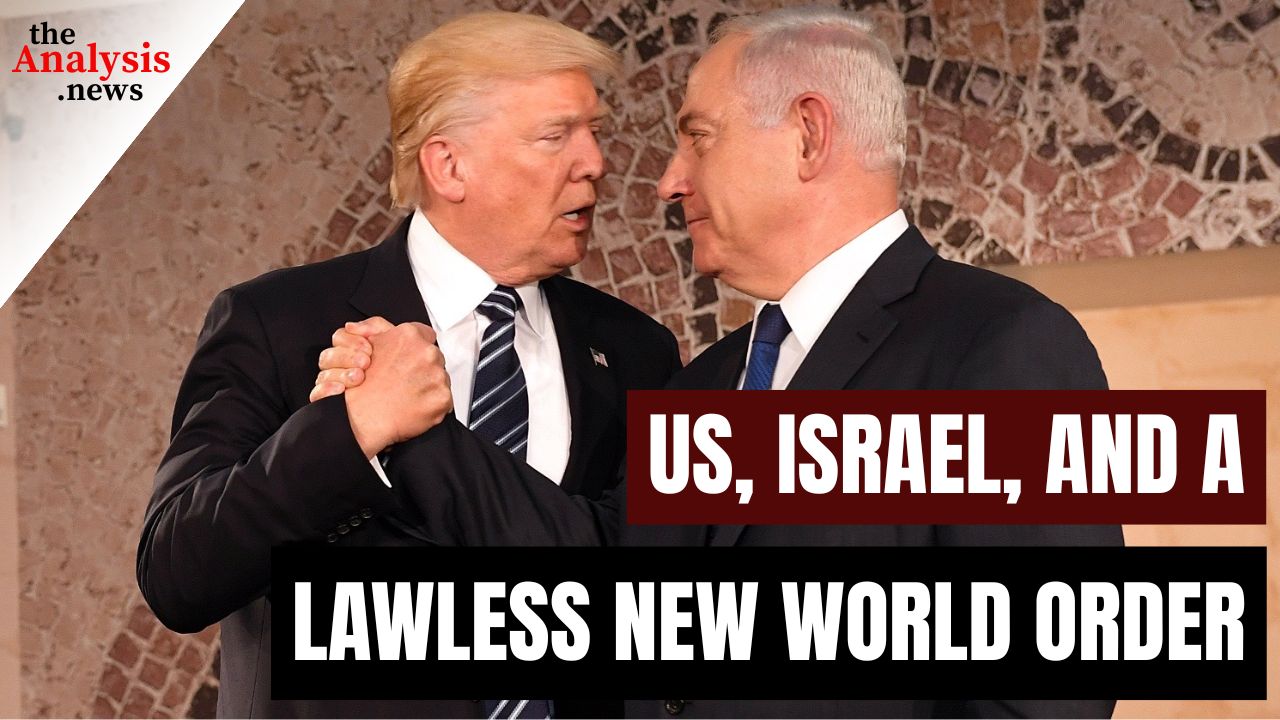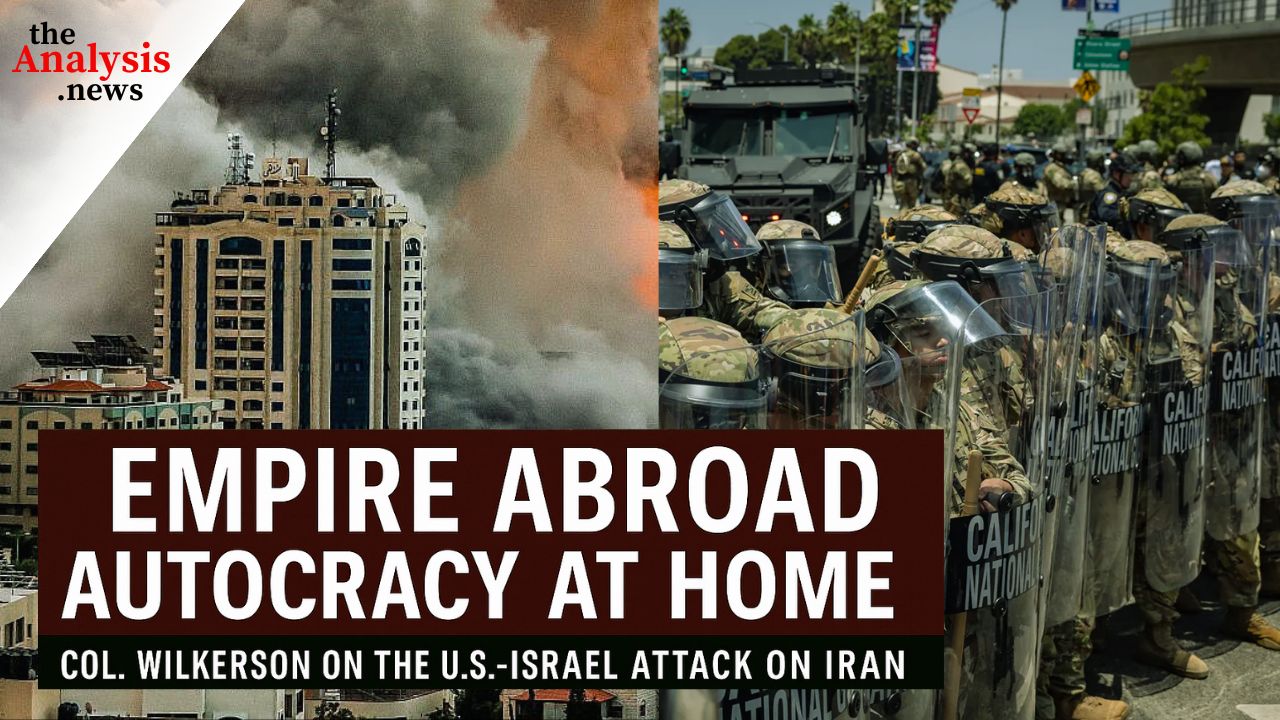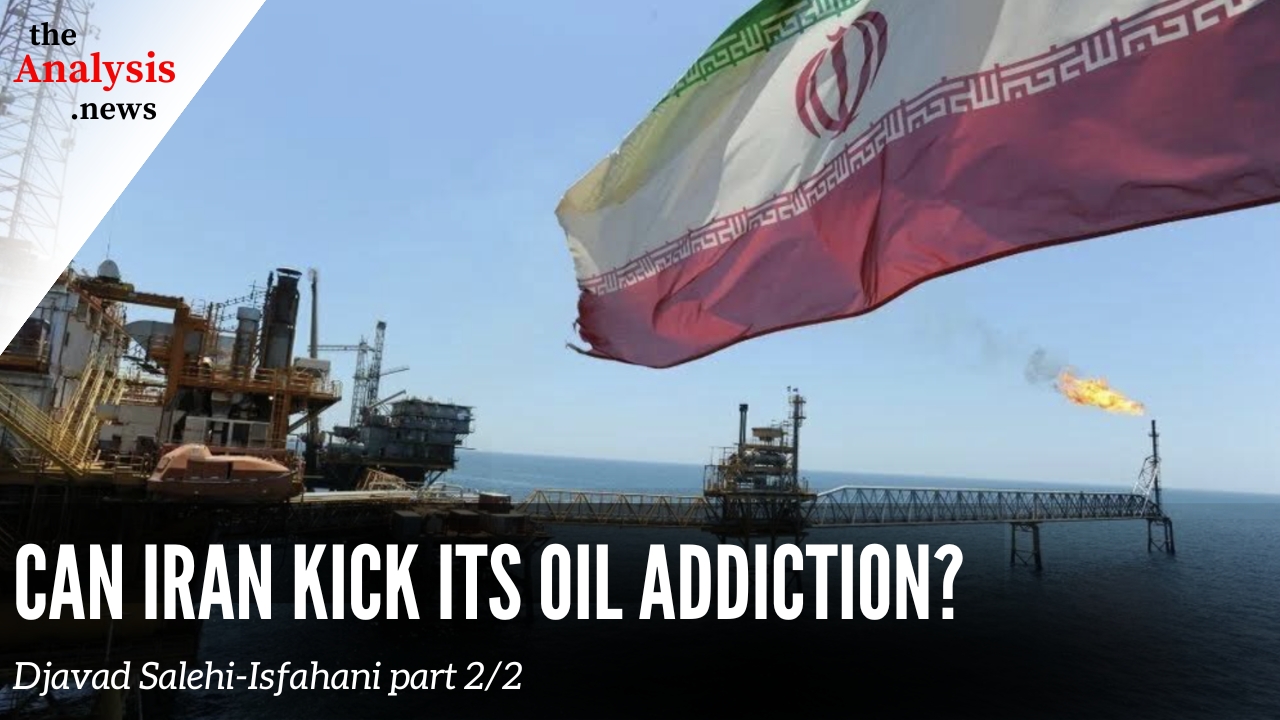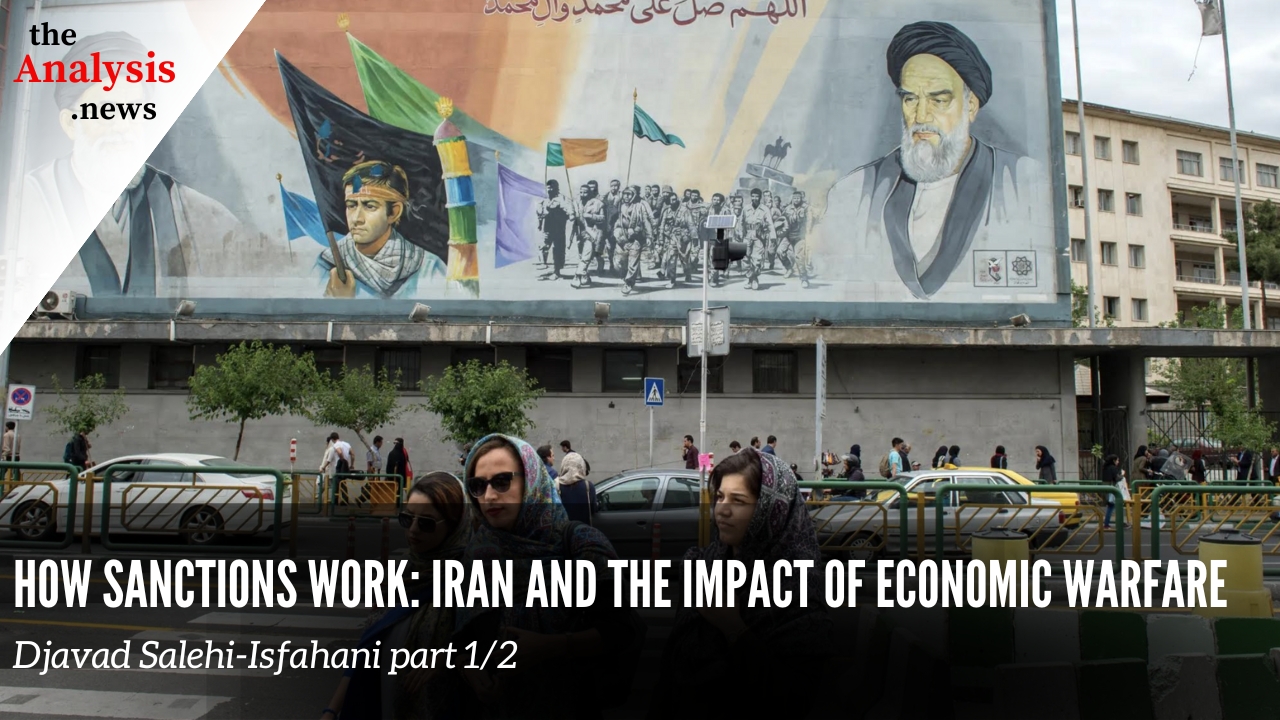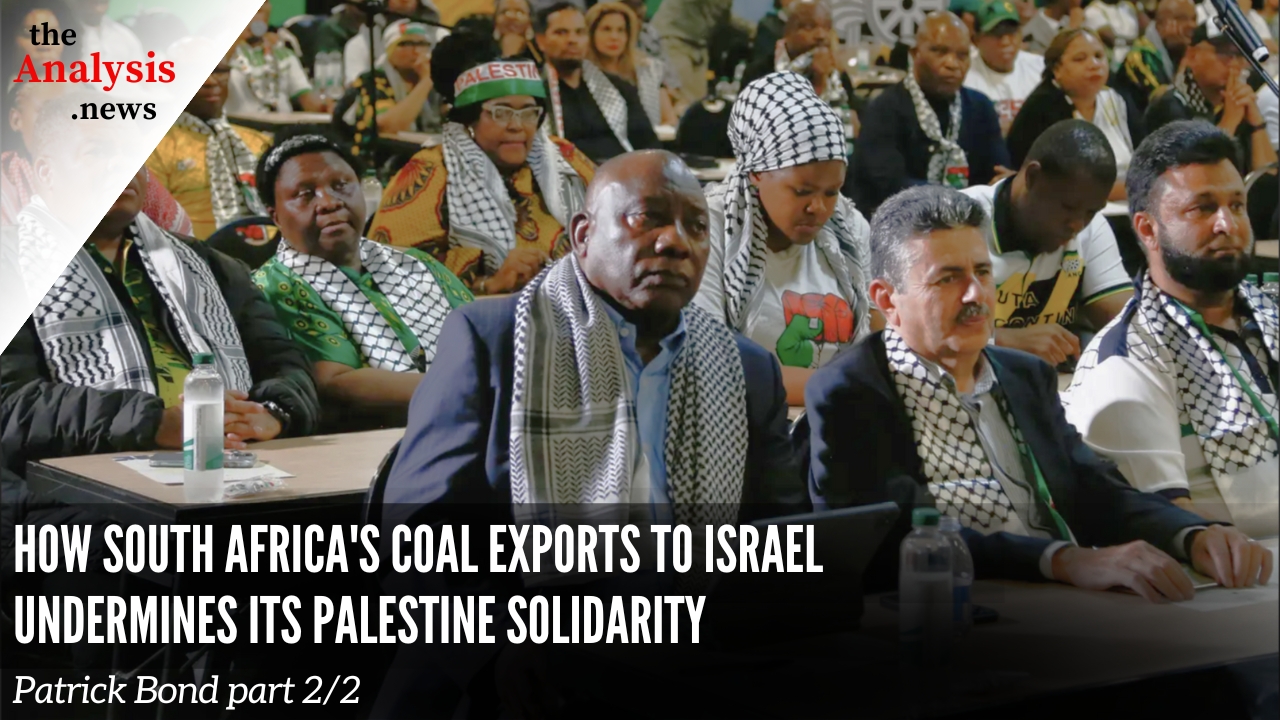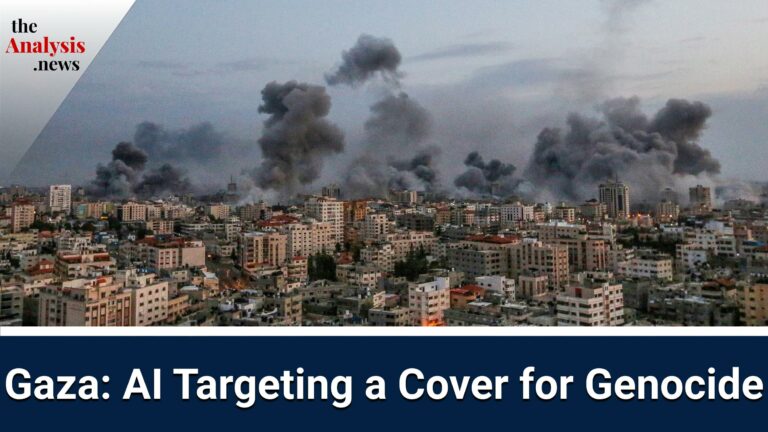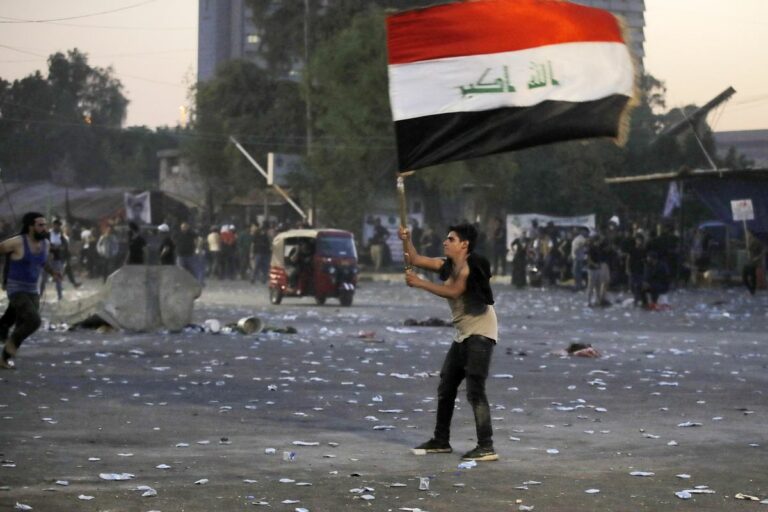In part two, Triestino Mariniello, Legal Representative of Gaza Victims at the International Criminal Court, discusses U.S. hypocrisy in accepting the ICC’s jurisdiction to issue arrest warrants for Russian President Vladimir Putin but not for Israeli Prime Minister Benjamin Netanyahu or former Defense Minister Yoav Gallant. Mariniello discusses how international legal instruments, such as the ICJ rulings on the risk of Israel committing genocide in Gaza, have been effective when not subject to U.S. intervention, unlike proceedings in the UN Security Council. Whatever is left of international law, he argues, is due to the perseverance of the Global South in pursuing justice for Palestinians.
Gaza Victims’ Lawyer Rebuts Western Objections to ICC Arrest Warrants for Netanyahu, Gallant – Triestino Mariniello Pt. 1/2
Talia Baroncelli
You’re watching theAnalysis.news, and I’m Talia Baroncelli. This is part two of my conversation with international lawyer Triestino Mariniello. If you enjoy this content and would like to give us a boost, you can go to our website theAnalysis.news, and hit the donate button at the top right corner of the screen. Make sure you’re on our mailing list; that way, we can send all of our content straight to your inbox. You can like and subscribe to the show on YouTube, on Apple, or on Spotify. See you in a bit with Triestino Mariniello.
I’m very excited to be joined by Triestino Mariniello. He is a professor of law at Liverpool John Moores University and is one of the legal representatives of Gaza victims at the ICC. It’s really great to have you here today, Triestino. Thank you.
Triestino Mariniello
Thank you very much, Talia, for the invitation.
Talia Baroncelli
One thing that the U.S. constantly says is that the U.S. has not ratified the Rome Statute, so they’re not party to the ICC. Would you say that there are certain customary norms enshrined in the Rome Statute which would still oblige state parties who have not signed onto it to respect it and to follow it?
Triestino Mariniello
Well, there is no sort to go to customary norm. We can go to the Geneva Convention and duty of accountability. But let’s start with the jurisdiction itself. This is, again, another unfounded legal argument. The International Criminal Court has jurisdiction; that’s the pillar of the ICC. It has jurisdiction when crimes within the jurisdiction of the court are committed by nationals of a state party or on the territory of state parties unless the Security Council intervenes, but that’s not the case.
The ICC has jurisdiction in relation to the situation in Palestine because these crimes are committed on the territory of a state party, full stop. So that’s why it has jurisdiction because Palestine has ratified the Rome Statute. There is no doubt about that. What the U.S. is arguing in this specific situation is a clear policy of double standards.
Let’s assume that we use the same arguments in relation to the situation in Ukraine. The situation in Ukraine is strongly supported by the U.S. authorities. There is a legislative act establishing cooperation with the court in relation to the evidence, which is unprecedented. The U.S., as usual, cooperates with the court in relation to the other investigation, which is not concerned, of course, with their allies. If what the U.S. is saying is true, it means that the court does not have jurisdiction against Putin. Very simply speaking.
Talia Baroncelli
Yeah, because Russia is not a state party.
Triestino Mariniello
Russia is not a state party. Again, in that case, the court has jurisdiction because these crimes are committed on the territory of a country that has accepted the jurisdiction of the ICC and which will also become a state party in January 2025. Did they ever challenge the jurisdiction of the ICC in Ukraine against Russia? I never heard anything like this. It’s unfounded, but it’s another clear sign of this policy of double standards. I’m not sure if they realize the danger of this policy because this policy of double standards is extremely dangerous before the context of Palestine because it’s undermining the credibility and the legitimacy of the entire international legal order, which was built up after the end of the Second World War to prevent the atrocities committed in every part of the world. Today, it is Palestine, but tomorrow it will be somewhere else. It’s a legal argument unfounded.
If I can add Talia, I’ve also heard someone, for instance, an Italian Minister for Foreign Affairs, claiming that Netanyahu could not be arrested by said parties because he is still a Prime Minister. Again, that’s a discussion that applies exactly to Putin. The question is, why not Putin? Putin is still the President. If you recognize immunity for Netanyahu– immunity is a very important topic under international law. I’m not underestimating this topic. We should discuss it. But if you are recognizing immunity for Netanyahu, you should say the same about Putin. Again, a double standard policy. Italy, the U.S., and 43 state parties to the ICC, I refer to the situation in Ukraine to the International Criminal Court, most of them, i.e., Germany, Italy, Hungary, to a certain extent, the U.K., formally opposed the investigation in Palestine. The risk is that they are undermining; they are ready to raise doubt, to undermine the existence of the International Criminal Court, despite the argument that they are the strongest supporters of the court.
Talia Baroncelli
In opposition to everything you just said, the U.S. incorrectly says that these two situations, the situation in Palestine and the situation in Ukraine, can’t be compared because Palestine is not a state. Ukraine was able to delegate its sovereignty to Poland or another country in the case of Russia invading Ukraine. In that particular case, they can go before the ICC, and the ICC has jurisdiction. In the case of Palestine, Palestine is supposedly not a state, and therefore, the court doesn’t have jurisdiction over Palestine either. What do you say to that?
Triestino Mariniello
Well, discussing whether Palestine is a state or not does not belong to the competence. It’s a legal issue, first of all, before being a political issue. Legal issue means that it does not belong to the competence of the Biden administration or to the current German government as long as it is in place. I’m not sure if it’s not exercising its function, its role anymore, or to any other states in the world. The issue here is not whether Palestine is, in general, a state under international law. To be honest, I think that under customary law, there is no doubt about this because the majority of states sitting within the General Assembly of the UAE nations have said that Palestine is a state. Under customary international law, this means that there is a uniform practice and an opinion, which are the two elements of customary law. I have the conclusion that under general international law, Palestine is a state. That’s not the issue here.
The issue here, as correctly said by the Pre-Trial Chamber in the February 2021 decision, is whether Palestine is a state under the settlement of the International Criminal Court. Full stop. So whether Palestine is a state before the ICC, this is the issue and the court has already taken a clear position. No political statements will reopen this issue. I don’t know if this is clear. Continuing to deny the jurisdiction of the court on the basis of purely political arguments is extremely dangerous because it undermines the role of the court and the decision that the court has issued.
When Palestine ratified the statute of the International Criminal Court, all state parties at the time had the possibility to challenge this and to raise this, to oppose this decision in the Assembly of State Parties. Do you know how many states did it? Just one. Canada. All the other ones, which now are claiming that Palestine is not a state, did not raise this issue. They supported the ratification of the state. It’s not just a matter. I’m not talking about the U.S., which is not a party. I’m talking of European countries, Germany, Italy, for instance, Hungary, and the Czech Republic. It’s not just a matter of respecting the decisions of the court. This is a matter of political schizophrenia. When you support a decision before, and then you oppose it when you see that this decision may bring some concrete effects.
Talia Baroncelli
What is your take on the United States in terms of how it’s continuing to undermine international legal norms? It continues to say that it supports the so-called rules-based international order, but in a way, it seems like this so-called rules-based order differs from the post-World War II body of international law that was signed— the UN charter and the treaties and charters that were signed and put in place at the time. Could you speak a bit about that tension there? Is the U.S. pursuing this argument because they know that they’re also complicit in these crimes?
Triestino Mariniello
Yes. Can I say something before going to that? The U.S. administration can raise criticism against the court. They can say that this criticism is legitimate. But there is a red line, of course. This red line is the threats against the court, which has been done. Twelve U.S. Senators have sent a letter to Khan in which they have explicitly threatened him. If you intervene, we will intervene against you. So we are moving.
Talia Baroncelli
Yeah, they’re specifically targeting the prosecutor of this case.
Triestino Mariniello
Specifically targeting the prosecutor before the issuance of arrest warrants. The list of statements is really long. We are moving from pressures to threats. Pressures are still unacceptable from a legal position, but threats, in this case, are not only unacceptable but are also a crime under the statute of the International Criminal Court under Article 7. Attempts to intimidate officials of the court are a crime. So that’s a stage in which there should be no discussion. It’s not a matter of interpretation. There should be no discussion. That’s the red line that no state official around the world should pass. You cannot argue that you are not a state party; you are not a state party has some legal implications, which means you don’t have a duty to cooperate with the court, but this does not give you the authorization to put in place any obstruction of justice which is a crime under the statute.
Going back to your question, which is a bit more general, I will say that we have seen that since this genocide started in Gaza, international law instruments where the U.S. authorities do not have the power to exercise their control have worked. Only those instruments that are immune to the U.S. authority’s powers, for instance, the International Court of Justice and the issuance of three binding decisions on the risk of genocide in the Gaza Strip, the International Criminal Court, the General Assembly of the United Nations, the UN Independent Commissions of Inquiry arguing that Israel has committed international crimes, the Special Committee of the Human Rights Council concluding that Israeli conducts in the Gaza Strip are consistent with the definition of genocide; the list is long here. We can go through several UN agencies and so on. The instruments of international law that have not worked so far are those in which the U.S. is able to exercise its control. We are, of course, referring first of all to the Security Council. The Security Council and the veto power used, almost always there was a request for a ceasefire in the Gaza Strip. Of course, this is a very dangerous attempt to undermine the entire international law system and its credibility in it. This credibility in international law has never been so low as it has been this year.
But to be clear, I want to make this clear that the problem here is not international law itself. As we have seen this year, there are instruments. The problem is the lack of political will of states to implement them, or to say it correctly, to implement them only when these instruments are used against their enemies. Of course, again, we go back to the concept of double standards.
Going again back to your question. If there is still a little credibility left in international law, it’s thanks to the Global South today, not thanks to the Western states. It’s thanks to South Africa bringing this before the International Court of Justice, the genocide case. It’s thanks to Nicaragua bringing Germany to the International Court of Justice for complicity in genocide. This was impossible to imagine, even for us who work in this field.
You know, just a few months before, not a long time ago, Germany intervened in another case before the International Court of Justice, supporting an extensive interpretation of genocide at the ICJ. A few months before, Germany would have never expected that after a few months, they would have been brought before the International Court of Justice. If these instruments are, to such an extent, working, it is because of the intervention of the Global South. So, if international law, I would say, still exists and will exist in the future, we should also express our gratitude to those states from the Global South.
Talia Baroncelli
That’s a good point. My very final question would be the families that you’re representing because you’re representing the families of Gaza victims. What is your sense now of how you can actually, or through the court, you can get justice for the people who have been victims of Israeli genocide and of these war crimes?
Triestino Mariniello
Well, first of all, now that the case is started, victims through their legal representatives, have the possibility to participate. We have done this so far in writing, but also now through hearings to express the views and concerns of victims before the International Criminal Court. We bring the voices of the victims before the International Criminal Court. We bring the evidence on their behalf; we have the possibility to make opening and concluding statements in the hearing, to question witnesses, and to hear the list. It’s a very important role that the victims have, thanks to the intervention of France during the draft of the Rome Statute in 1998.
This decision of arrest warrants, even before now, the beginning of the hearing, has already had some extremely important effect on Palestinian victims. I think, I strongly believe that the decision has finally recognized the role and existence of Palestinian victims. We are talking of a context in which, first of all, Palestinians are victims of a dehumanization process. They are seen not as human beings, and that’s clear from what has been done in Gaza but also from the statements of political leaders. They are the so-called human animals, according to Gallant, when he declared a total siege on Gaza. So, first of all, the decision of the court recognized their existence and their humanity, which is something that we sometimes take for granted, but it’s not, cannot be taken for granted in a context of institutionalized discrimination like the one that Palestinian suffers.
What we expect now is, first of all, that state parties comply with their legal obligations. So, they implement arrest warrants. Next week, there will be the Assembly of State Parties in the Hague, and they also express their invitation to the States to comply with such legal. Otherwise it will be extremely dangerous for the court itself, for the existence of the court itself.
Second, we expect that the proceedings now will move in an expeditious way because, again, for victims, justice delayed is justice denied. And they have been waiting already too long for justice.
And then, finally, if I can summarize, we’ll also expect that the Office of the Prosecutor is going to widen the scope of his investigation on the basis of what I said before. There is a long list of widely documented international crimes, war crimes, crimes against humanity, and genocide in the Gaza Strip, but also in the West Bank, including East Jerusalem, which should be brought immediately before the International Criminal Court.
When I say widening the scope of the investigation, I mean, first of all, investigating other crimes. Other crimes, as I said, are not included in the investigation yet, but also requesting arrest warrants against other Israeli political and military leaders. It’s surprising that some members of the government are not subject to arrest warrants in this case for crimes committed also in the West Bank.
In relation to political leaders, the Chamber now says that they have enough evidence and reasonable grounds to believe that there have been intentional attacks, military attacks against civilians. So, where is the army in this investigation? I mean, the fact that there is no military leader brought to the Hague with the request of arrest warrants, it’s also a bit dangerous because he could provide indirect legitimacy to that very dangerous narrative that this is a moral army that is just complying with orders given by two political leaders, which is not the case at all. So in order to reflect the reality and the existing evidence, this will be another immediate step. Widen the scope of an investigation in relation to crimes and individuals.
At the same time, I would also expect that domestic cases started because now that the ICC has said that there are reasonable grounds that war crimes and crimes against humanity have been convicted, there is a long list of Israeli citizens with dual nationality fighting committing allegedly international crimes in Gaza, they should be brought before domestic authority. So I would expect that in many countries, in particular European countries, Germany is one of those; maybe it’s never going to happen, but Germany has universal jurisdiction under the Code of Criminal Procedure. It can be used only against nationals of some states. All the cases of crimes against Palestinians have been shut down. The federal prosecutor, which has competence under Article 153F of the Code of Criminal Procedure, has never opened an investigation. So one would expect that even now, domestic jurisdictions would fall over the court because if these crimes are committed, it means that there are also other people committing these crimes. And there is, and I will conclude with this: there is an Al Jazeera document showing the commission of war crimes by Israeli soldiers in the Gaza Strip and then saying this publicly on social media.
This is the stage in which national jurisdiction should intervene and start their own criminal proceedings and put an end to impunity, which is the most important thing in that specific context, which is the reason behind the commission of these crimes, I believe. You can see this from the reaction of the Israeli leaders because they have always enjoyed impunity. They are really surprised that now there is a concrete step by international organizations to put an end to this.
Talia Baroncelli
All right, Triestino Mariniello, it’s been great speaking to you. I have so many more questions, but I think we can leave that for another time, maybe when there are more developments with regard to this particular case and if Netanyahu is ever arrested or former Defense Minister Yoav Gallant.
Triestino Mariniello
It will happen before or after. International justice, I mean, now those have been opened. So it’s unlikely this is going to happen in the short term, but things change. Politically, things change. Yes, I believe that there will be justice, and even the other words before and after will be implemented.
Talia Baroncelli
Well, thank you, Professor Mariniello. You’re the representative of Gaza victims at the ICC. It’s really been quite an opportunity to speak to you. Thanks again.
Triestino Mariniello
Thank you. Have a lovely day.
Talia Baroncelli
Thank you for watching theAnalysis.news. If you enjoyed that content, feel free to support us by going to theAnalysis.news. See you next time.
Podcast: Play in new window | Download | Embed
Subscribe Apple Podcasts | Spotify | Android | iHeartRadio | Blubrry | TuneIn | Deezer | RSS
Never miss another story
Subscribe to theAnalysis.news – Newsletter
Triestino Mariniello has published a considerable number of peer-reviewed articles, books and book chapters in (international) criminal law and human rights law. He has been consulted as an expert in international criminal justice and human rights by several governmental and non-governmental organizations. He has been awarded the Alexander von Humboldt Fellowship for Experienced Researchers to conduct research in international criminal law at the Humboldt University of Berlin (2021-2023). Currently. he is Co-Investigator of the AHRC funded project on ‘Palestinian Bedouin at Risk of Forced Displacement: IHL Vulnerabilities, ICC Possibilities’. He is a qualified barrister in Italy and member of the legal team representing Gaza victims before the International Criminal Court. He has also served as a Visiting Professional and Associate Legal Officer at the Pre-Trial Division of the International Criminal Court.

